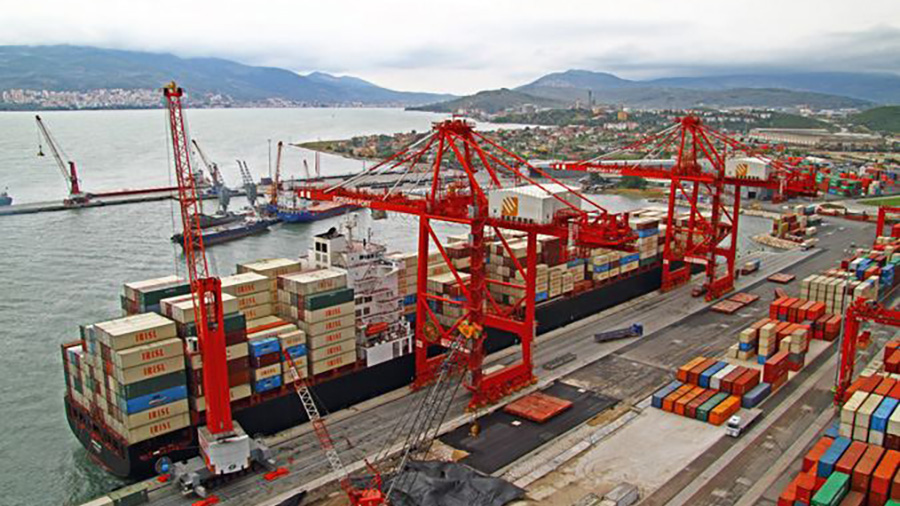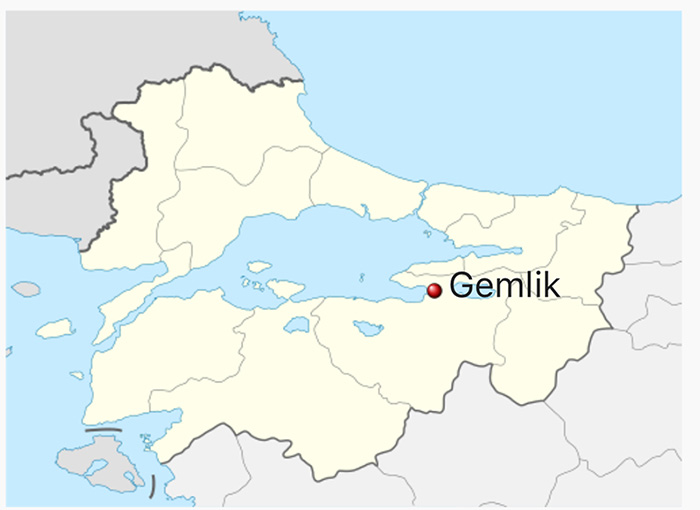Turkey’s Gemlik Port Transshipments Shoot Up March & April

Gemlik Free Trade Zone facilities will be of interest to adding value to Asian-EU markets
More evidence of adaption to the northern rail routes from Russia being sanctioned with the subsequent drop in transshipments between Asia and the EU can be seen in the performance of Turkey’s Gemlik Port on the Marmara Sea, which has access to Europe via the Bosphurus.
The numbers of port calls from both Turkish and international shipping companies since early March has tripled, while overall on an annualized basis, Turkeys overall ports calls have shown a slight decline. Turkish ports handled 24.1 million tons of cargo in March 2022. The Russia-Ukraine conflict is having significant regional impact as supply chains readjust.
Gemlik is an industrial port and it has a freezone trade center, likely to become significant as it means that goods destined for either the EU or Asia can be finished in the Gemlik FTZ before the final product shipped to the pertinent destination. Component parts can be sourced from eastern Europe, Turkey, the Caucasus, Middle East and North Africa before being converted into a finished product. That is of significance to numerous industries including cereal products to automotive. There are also important industrial establishments in south and west of the harbors. The port of Gemlik is one of the busiest import harbors in Turkey. Gemlik itself is renowned for its black olives.

Due to its location, Gemlik can support transshipment both north and south, with access to Greece as well as the Mediterranean East coast with Cyprus, Syria, Lebanon, Israel, and Egypt.
The facility holds a total of 8 berths for all kinds of cargo. Dealing with general cargo, the berths vary between 7 meters to 12 meters for the alongside depth. The major cargo arrivals come through containers and vehicles reaching into the country. Gemlik therefore sees between 340,000 to 370,000 TEU of container arrivals annually, although this can now be expected to increase. This couples with 160,000 arrivals of roll-on roll-off vehicles at the Gemlik bay.
Gemlik has become an extended part of the INSTC reach, with rail and sea port connectivity east across the Black Sea and to the Caucasus. There, shipping can take place via Baku and connect in several directions: North to the Russian ports at Lagan and Astrakhan and the massive Volga River catchment area, east to markets in Central Asia and China, and south to Iran and markets in the Middle East, East Africa, India, and South Asia.
Related Reading
About Us
Chris Devonshire-Ellis is the Chairman of Dezan Shira & Associates. The firm assists British and Foreign Investment into Asia and has 28 offices throughout China, India, the ASEAN nations and Russia. For strategic and business intelligence concerning China’s Belt & Road Initiative please email silkroad@dezshira.com or visit us at www.dezshira.com





